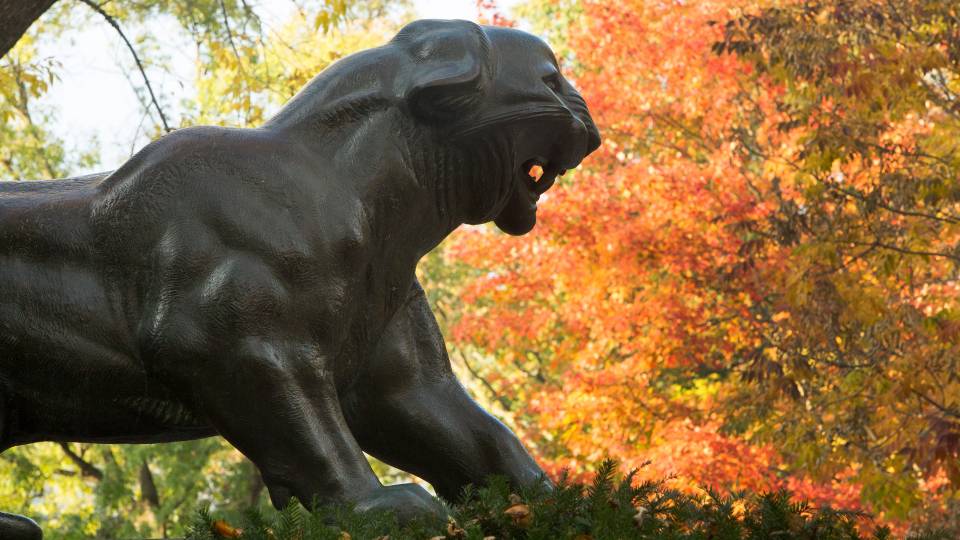More than 4,000 Princeton University students and employees approved to be on campus for the fall semester were tested during the first week of Princeton’s asymptomatic COVID-19 testing protocol. Pictured: For the first few weeks of the semester, testing is taking place outdoors at Princeton University Stadium Concourse in a clinic set up with appropriate social distancing and public health protocols.
More than 4,000 Princeton University students and employees approved to be on campus for the fall semester were tested during the first week of Princeton’s comprehensive asymptomatic COVID-19 testing protocol, which concluded Friday, Aug. 28. The testing, which is part of the University’s public health plan to prevent the spread of the novel coronavirus, is required for members of the University community who have been approved to be and are physically on campus for at least 8 hours per week.
For the first few weeks, the asymptomatic testing is taking place outdoors at the Princeton University Stadium Concourse in a clinic set up with appropriate social distancing and public health protocols, including barriers placed between every testing station. All participants and staff wear face coverings. University Health Services is administering saliva tests, which require spitting into a tube.
Starting the week of Sept. 7, a small number of individuals in the asymptomatic testing protocol will begin self-administered testing (following training during their visits to the in-person testing clinics Aug. 24-Sept. 4). Gradually all testing will be self-collected.
Summary of results: Week one
- 4,477 tests were administered.
- 4,473 results were negative.
- 4 results were positive. All four are University employees who were immediately contacted by the University’s Global and Community Health (GCH) team, who oversee the testing protocol. They remain in isolation and will continue to be paid during their isolation period. The GCH team also conducted the contact tracing necessary to rapidly quarantine those persons considered to be close contacts of the positive cases (within 6 feet for greater or equal to 10 minutes). No students tested positive.
- These results represent a positivity rate of 0.09%.
- Results will be published weekly on the Fall 2020 site.
“It is reassuring to see such a low positivity rate as we start the semester,” said Irini Daskalaki, a physician and infectious diseases specialist at University Health Services. “It is encouraging that adherence to public health measures has kept the rates low in our area and our campus so far.”
“The four positive cases found were not in close contact with one another and so this very small positivity rate does not reflect a cluster — an important public health consideration,” said Melissa Marks, director of medical services at University Health Services. “These results are very encouraging for the start of the semester.”
Marks added: “We are extremely fortunate to have Dr. Daskalaki guiding Princeton University’s public health response and leading our Global and Community Health team. Not only does she bring the expertise of an infectious disease specialist, she is also able to understand and choreograph the many arms of public health intervention. It is rare for a University Health Service to be staffed with an infectious disease specialist."
Daskalaki joined Princeton in January 2017. She attended the University of Athens, completed her residency at Monmouth Medical Center in New Jersey, and a Pediatric Infectious Disease fellowship at St. Christopher’s Hospital for Children in Philadelphia.
The University has established a Screening, Testing and Analysis Group to assess and compare asymptomatic screening test results week to week, and to make recommendations for testing throughout the fall semester. In addition to Daskalaki, the group’s members include John Kolligian, executive director, University Health Services; Daniel Notterman, senior research scholar and lecturer with the rank of professor in molecular biology; Bryan Grenfell, the Kathryn Briger and Sarah Fenton Professor of Ecology and Evolutionary Biology and Public Affairs; Robin Izzo, executive director, Environmental Health and Safety; and Kevin Licciardi, a University counsel.
Additionally, the University continues to track testing for all members of the University community who are tested for COVID-19 in any jurisdiction either because they are symptomatic or may have been exposed to someone who is. Results for the test period Aug. 24-30 are:
- 9 students have been tested for COVID-19. Of those, 1 student tested was on campus and 8 were elsewhere. The on-campus student tested negative and discontinued isolation per the clinical criteria. Of the off-campus students, 1 tested positive and is receiving appropriate treatment, 4 tested negative and 3 test results are pending.
- 4 employees have been tested for COVID-19. All 4 tested negative.























